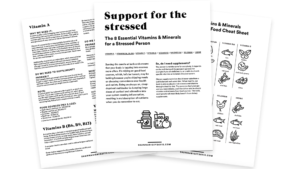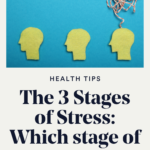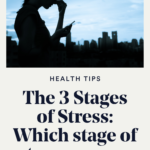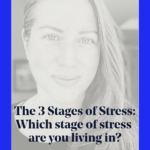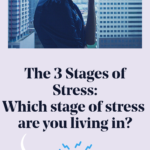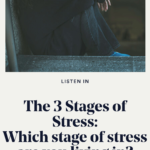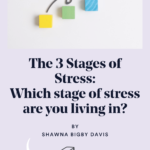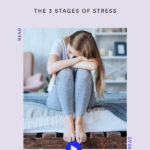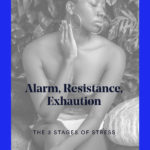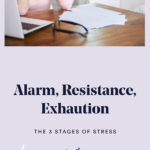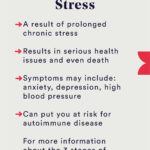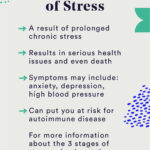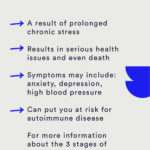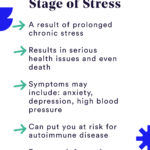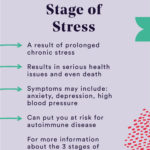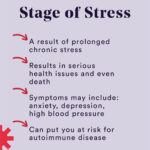We tend to know stress as a feeling or a situation or circumstance. But did you know there are actually three main stages of stress that we move through? They are the alarm, resistance, and exhaustion stages.
The “Father of Stress”, Hungarian endocrinologist Hans Selye, pioneered and was the first to provide a biological explanation for how we respond to stressful situations. He named it General Adaption Syndrome, or GAS, something I find super ironic. When we’re stressed don’t we all say we’re running out of gas?
Not everyone experiences all three stages, it depends on how long or how often you may be exposed to stress. And then there’s the study of people’s individual resilience to stress and how much or how little they can take.
“Every stress leaves an indelible scar, and the organism pays for its survival after a stressful situation by becoming a little older.”
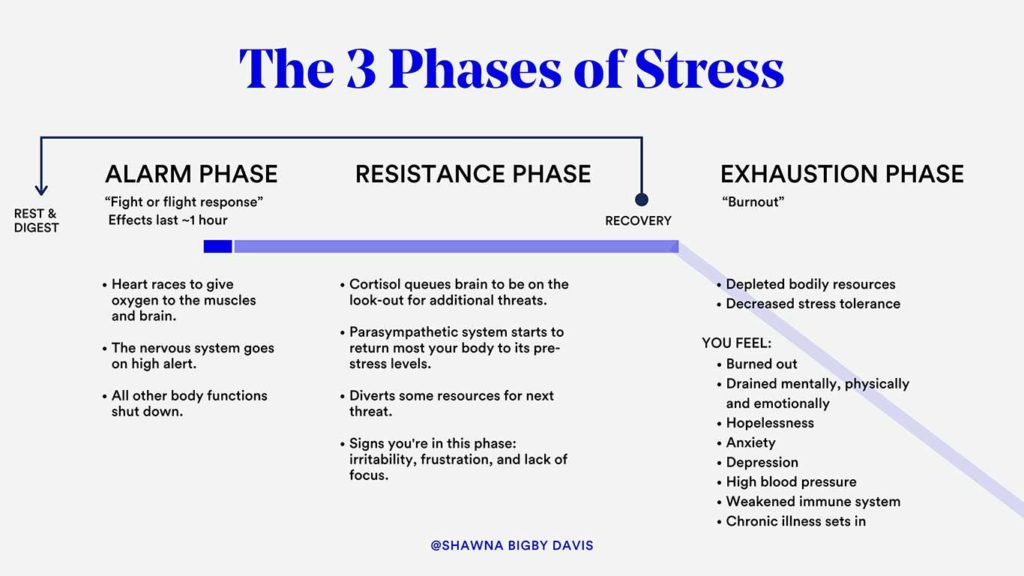
1st Stage: The Alarm Stage
You know the alarm stage as the fight or flight response. Your brain sends an emergency signal to your body which says ‘Yo, we’re in a dangerous situation. Time to hustle!’ As your body gets ready to react, you choose (ha, your body really chooses) between a fight or flight response: Your heart starts beating faster, which provides more blood and oxygen to your arms and legs. The nervous system is prepared to either fight or flight. All other body functions are seen as “auxiliary” at this point, including shutting down your digestion.
2nd Stage: The Resistance Stage
If the alarm stage doesn’t help you escape from a stressful situation, your body progresses to the next stage, where you remain in an alert stage for a longer time. During the resistance stage, your parasympathetic nervous system tries to return your bodily functions to their pre-stress levels, while focusing bodily resources on the next stressor or threat.
The hormones that are released during stressful times can damage your cells. If you have no time to recover from the next moment of stress, then your body remains prepared, swimming in adrenaline and cortisol, which can lead to exhaustion. Signs of the resistance stage include irritability, frustration, and lack of focus. It’s essential for your body to repair and recover during the resistance stage. If not, your risk for exhaustion rises.
3rd Stage: The Exhaustion Stage, aka Burnout
You’re more familiar with this stage as “burnout or overload.” This stage is the result of prolonged or chronic stress. When your body can no longer deal with a threat or stressor, you progress to the exhaustion stage, where you’ve depleted your bodily resources. This can lead to serious health issues and illness—even death. Struggling with stress for long periods can drain your physical, emotional, and mental resources to the point where your body no longer has the strength to fight stress. You may give up or feel your situation is hopeless. Signs of this state include anxiety, depression, high blood pressure, and heart problems. The physical effects of this stage also weaken your immune system and put you at risk for autoimmune issues.
The Takeaway
It’s not all doom and gloom. The fight-or-flight response that occurs in the alarm stage is for your protection. A higher hormone level during this stage benefits you with more energy and improves your focus to tackle the situation. When stress is short-term or short-lived, the alarm stage isn’t harmful.
The problem is with prolonged stress. The longer you deal with stress, the more harmful it is to your health. You also don’t want to settle in the resistance stage for too long and risk entering the exhaustion stage. Once you’re in the exhaustion stage, prolonged stress raises the risk for chronic high blood pressure, stroke, heart disease, and depression. You also have a higher risk for infections and cancer due to a weaker immune system.
It’s fairly impossible to eliminate every stressor, so it’s important to find ways to cope with stress. Knowing the signs and stages of stress are helpful. But knowing your triggers and what sets you off is even more important. This insight will allow you to change your thought patterns, your reactions, and your responses. Where it gets really interesting is where you start to change your habits because you recognize your NEED and addiction to the stress response and put yourself into situations subconsciously to feel that.
And with all good health advice out there, it’s important to say that other techniques like regular exercise, meditation, and deep-breathing exercises can help you cope and maintain healthy stress levels.


